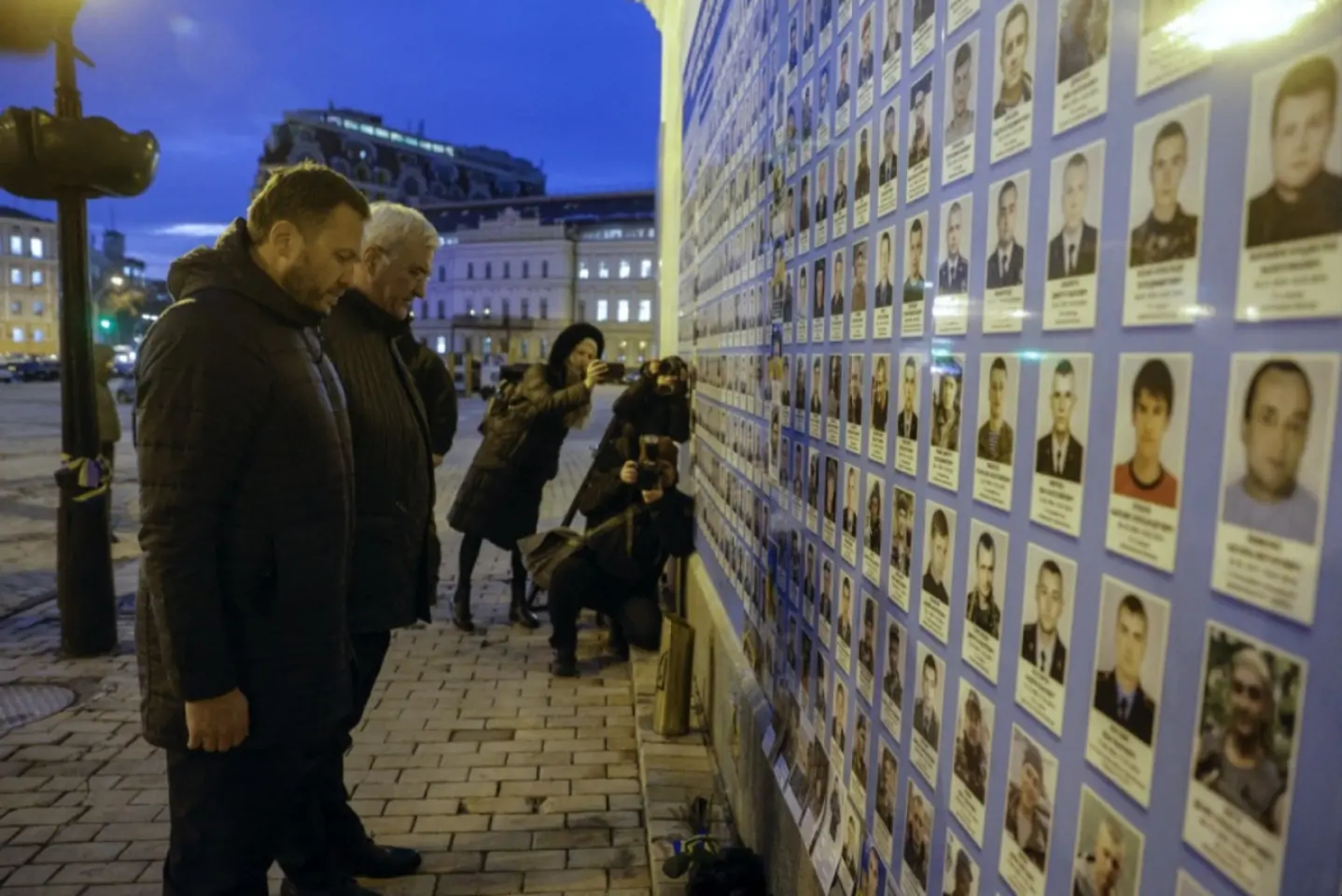
A study commissioned by the Estonian Ministry of Foreign Affairs in the spring revealed that the views of Estonian and Russian-speaking residents diverge significantly on most key issues of Estonia's foreign policy.
The most striking numbers concern support for Ukraine: 88% of ethnic Estonians support this attacked state, compared to only 6% of local Russians. Against this background, it is unsurprising that Estonians consider regional cooperation with Nordic and Baltic countries (44% of respondents) and strengthening NATO’s collective defense (44%) the top foreign policy priorities. Meanwhile, Russian-speaking residents prioritize supporting companies in entering foreign markets (53%) and improving relations with Russia (46%).
Overall, 68% of Russian-speakers believe that relations with Russia should be improved or at least kept neutral, compared to only 29% of Estonians. Similar discrepancies appear in attitudes towards economic relations with Russia: only 7% of Russian-speakers support sanctions, and 70% oppose the state taking loans for defense spending.
These views are most prevalent in cities and regions with a high proportion of Russian-speaking residents, particularly Tallinn and the entire northeastern region of Estonia bordering the Russian Federation. In the northeastern region of Ida-Virumaa only 3% support Ukraine.
Furthermore, 58% of Russian-speakers in Estonia believe that Ukraine should give Crimea to Russia, and 45% think that all currently occupied Ukrainian territories should go to Russian Federation. More than half believe that Ukraine should abandon its aspirations to join the EU and NATO and declare neutrality, while 39% want NATO to comply with Russia’s demand to end its military presence and exercises not only in Estonia, but in the Eastern Europe in general. Less than 10% of ethnic Estonians share these views.
The divide Is obvious
"I guess I hoped this divide would be smaller, or maybe I subconsciously downplayed it in my mind," says Zhenya Volokhonskaya, editor of the foreign policy program "Orbita" on the Russian-language channel ETV+ of Estonian Public Broadcasting.
In her opinion, the Russian-speaking population in Estonia can roughly be divided into three groups: one is very pro-Estonian and pro-Western, sharing fully in European values; another, approximately equal in size, openly supports Russia’s aggression; and about half remain undecided. “These are people who exhibit a kind of relativism, perhaps as a defense mechanism: ‘we don’t know the whole truth, nothing is black and white.’ And I’ve always felt that these 50% of the Russian-speaking population are the ones we can work with, because at some point, they might wake up,” she says.
The results of the sociological study do not inspire optimism in her: "Basically, it turns out that 80% of Russian-speakers, either more loudly or more quietly, still indirectly support Russia," Volokhonskaya states.
According to her, the reason for such a sharp divide between Estonian- and Russian-speaking residents lies in their different interpretations of history. "Estonians view the Soviet Union and, consequently, its successor Russia as a trauma — involving deportations, repressions, and the loss of independence. But for Russian-speakers, it’s a great power, a union of brotherly peoples — the full range of Soviet propaganda narratives," she explains.
This is often accompanied by a dismissive attitude toward Estonian culture and language. "It is seen as something provincial compared to vast Russia, which feels closer due to a shared cultural code. And all of this is reinforced by an overwhelming amount of propaganda, including on social media. Estonia, as a state, simply cannot compete with this, because the Russian-speaking information space is far too vast," says Volokhonskaya, noting that pro-Russian narratives are widespread across the diaspora, regardless of the specific country.
The Baltic states want to see Ukraine in NATO
Indeed, as much as the Estonian state might wish otherwise, local Russian-speakers get their information about international events not only from national public broadcasting. Although Russian TV channels are banned in Estonia, there are ways to bypass this restriction.
Foreign policy topics are also actively discussed in social media communities, and, for example, one of the initiators of such discussions in the "Russian-speaking Estonia" Facebook group is a former employee of the pro-Kremlin outlet Sputnik.
The comments under these threads leave no doubt as to which side the users are on.
For instance, a recent statement by Estonian Foreign Minister Margus Tsahkna that Europeans would take the war into Russia itself if attacked, sparked doubts among Russian-speaking commenters about the minister’s mental competence.
"There’s no choice but to assume that the country’s politicians are perversely begging the Neighbor to restore order in the madhouse they themselves turned into a den of demons," one user wrote.
If the Russian-speaking population is left in this informational vacuum, it will fully fall into the Russian info-bubble on social media, says editor Zhenya Volokhonskaya. This is why she believes it is necessary to support Russian-language media at the state level, especially since the group most vulnerable to Kremlin propaganda — those over forty — typically have a poor command of the Estonian language. "There’s no need to block Russian channels — there’s already so much online. Facebook’s algorithms feed you narratives that resonate with your cultural codes, and you perceive this as confirmation of your own inner truth," she explains.
Meanwhile, according to the aforementioned study, Russian-speaking respondents consider themselves to be much better informed about foreign policy than Estonians: among stateless persons holding so-called alien passports, 82% consider themselves politically literate, and among local Russian citizens, that figure is 80%. The same figure among Estonian citizens is only 59%.
It is also easy to notice: the weaker the respondent's Estonian identity, the less their views on Estonia’s foreign policy align with the official political course of Tallinn.
Estonia has been a member of the EU and NATO since 2004, and actively supports Ukraine not only in its war against Russian invaders, but also in its aspirations to join the North Atlantic Alliance and the European Union. Back in spring 2023, the Estonian parliament adopted a resolution in support of Ukraine's NATO membership, with an overwhelming majority of MPs voting in favor.
Before the June NATO summit in The Hague, Estonian officials advocated not only for increasing defense spending to 5% of GDP, but also for Ukraine to receive an official invitation to join NATO. Although it must be said that there is no consensus in Estonian society regarding the increase in defense spending either: a third of the population considers the current spending level of about 3.5% of GDP sufficient, while another third believes that Estonia’s contribution should actually be reduced by increasing the overall contribution of other EU countries.
"Why do Estonians see more parallels with Ukraine, than our local Russian-speaking population does? Because Estonians are afraid of losing their country, their independence again," explains Zhenya Volokhonskaya. "And Russian-speakers, perhaps, are afraid they won’t find their place in this country." The Estonian state has not yet been able to resolve this problem.


